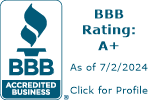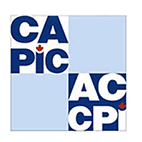“I am a Social Worker with work experience. What options do I have to immigrate to Canada?”
Since Express Entry added social workers to their healthcare draws, this has become one of the most common questions we receive. The short answer? Your options have never been better.
Canada needs social workers now more than ever. With over 77,500 social workers currently employed and nearly 25% approaching retirement, opportunities are everywhere.
Social workers can also benefit from Category-Specific Express Entry draws under Canada’s Healthcare Category, giving prioritized access to permanent residency (PR).
But having a social work degree doesn’t guarantee success. Your pathway depends on your experience level, English skills, and willingness to consider different provinces.
In this article, I’ll explain the immigration pathways available to social workers, based on my practice as a regulated Canadian immigration consultant.
Why Canada Needs Social Workers?
Canada is facing a serious shortage of social workers until 2033. Three main factors are driving this need:
Aging Population: The number of seniors in Canada is growing quickly. This creates a high demand for geriatric social workers and elder care specialists.
Mental Health Crisis: More people are struggling with addiction, depression, and mental health issues. This means we need more community and clinical social workers.
Workforce Retirement: More than 23% of current social workers are close to retirement. This will create thousands of job openings nationwide.
Express Entry now includes social workers in priority occupation draws. This shows the urgent need for these professionals in Canada.
Two Types of Social Workers Canada Recognizes
Canada classifies social work into two categories that determine your immigration options:
Social Workers (NOC 41300)
These are the registered, clinical professionals:
- Medical social workers in hospitals
- Psychiatric social workers in mental health facilities
- School social workers in education systems
- Child welfare investigators
- Family social workers
- Addiction social workers with clinical roles
Most positions require a Master of Social Work (MSW) and provincial licensing.
Average salary: $52,000 to $98,000 annually.
Social and Community Service Workers (NOC 42201)
This broader category includes frontline community roles:
- Community outreach workers
- Addiction counselors
- Group home staff
- Peer support workers
- Youth workers
- Crisis intervention workers
- Settlement workers
These positions typically require a bachelor’s degree, diploma, or relevant experience.
Average salary: $40,000 to $70,000 annually.
Your NOC classification determines which immigration programs you are eligible for, so make sure your job duties align with these descriptions.
Express Entry for Social Workers
Express Entry manages Canada’s three main federal immigration programs. The system ranks candidates and invites the highest scorers to apply for permanent residence.
How Express Entry Works for Social Workers?
You need one year of full-time work experience in social work within the past 10 years.
To qualify for Express Entry, you require at least 1 year of experience in a skilled occupation.
However, to qualify for the Healthcare category draw, which includes the two NOC codes 41300 and 42201, you only need 6 months of full-time experience in these occupations within the last 3 years.
Your English or French must score at least Canadian Language Benchmark (CLB) 7, though CLB 8 or 9 significantly improves your chances.
Federal Skilled Worker Program: Requires 67 points out of 100 to enter the pool. Recent general draws had minimum CRS scores of 529 (April 23, 2024), making them extremely competitive. There are no FSWP draws happening, and candidates who qualify for one of the category draws have a chance through the healthcare category draw
The most recent healthcare draw was 470 (August, 2025), with a much better chance compared to the CEC general draw which has been in the range of 518-547 in the last several months.
Canadian Experience Class: For social workers already in Canada with one year of Canadian work experience. Recent CEC draws required 518-547 CRS points.
Healthcare and Social Services Category Draws: This is your best advantage as a social worker. Since May 2, 2025, when social workers were first included in healthcare category draws, CRS scores have been consistently decreasing: 510 (May 2), 504 (June 4), 475 (July 22), and 470 in the most recent draw. These scores are 40-80 points lower than general draws, giving social workers a significant competitive advantage.
Boosting Your CRS Score as a Social Worker
- Age 29-32 gives maximum points
- A master’s degree beats a bachelor’s degree
- Perfect English (CLB 9)
- Learning French as a second language can add 15-50 points, depending on your level
- Advanced French (CLB 7+) combined with strong English essentially guarantees an invitation through category-based draws
Obtain Canada PR as a Social Worker
Apply for Canadian PR with our licensed consultants.
Provincial Nominee Programs (PNPs) for Social Workers
Many provinces actively recruit social workers to meet local shortages. These programs often provide better chances than Express Entry alone.
Manitoba
Manitoba includes both social worker classifications on its in-demand occupations list. The province has two main pathways:
- Skilled Worker in Manitoba: For those with job offers or previous Manitoba connections
- Human Capital Pathway: For candidates without prior provincial ties but with in-demand skills
British Columbia
BC targets social workers for communities outside Vancouver through their Health Authority stream. If you’re willing to work in smaller cities, BC provides excellent settlement support and established pathways. The Health Authority stream is no longer having any draws.
Saskatchewan
Saskatchewan’s International Skilled Worker program includes both NOC 41300 and NOC 42201 on its Health Talent pathway. The province particularly needs mental health and addiction workers.
Atlantic Provinces
Nova Scotia, New Brunswick, Prince Edward Island, and Newfoundland are in dire need of social workers to support their aging populations. Lower competition makes these provinces more accessible.
Important: New Brunswick doesn’t include NOC 42201 in regular draws, focusing mainly on registered social workers.
Ontario
Ontario’s Human Capital Priorities stream regularly selects social workers, especially those with French skills or Canadian education credentials.
Rural Communities
Rural Community Immigration Pilot (RCIP) and the Francophone Community Immigration Pilot (FCIP) Programs, like Sudbury, Ontario, that prioritize Social and Community Service Workers (NOC 42201). These smaller centers have pathways for those willing to live outside major cities.
What Documents You Need to Immigrate to Canada as a Social Worker?
Educational Credential Assessment: You can get ECA done from any approved body/institution. A lot of people use World Education Services (WES) because of faster processing. Takes 4-8 weeks, costs around $300. Some programs only accept specific organizations.
Language Test Results: IELTS or CELPIP or PTE for English, TEF or TCF for French. Valid for two years. Budget $300+ per test. Consider professional preparation if practice scores are borderline.
Employment Letters: Must include job title, detailed duties, employment dates, salary, and hours per week. Generic HR letters cause rejections. You need supervisors who understand immigration requirements.
Professional References: Choose people who know your work well and can verify your competence.
Police Clearances: From every country where you lived for six months since age 18. FBI clearances take months to process.
Medical Exams: Only from physicians on the approved panel. Family doctor exams aren’t accepted.
Important note: The Canadian government has proposed to introduce a new permanent economic class under the IRPA for TEER 4 and 5 workers. This is not fully in force yet in all respects.
Getting Licensed After You Arrive
Professional licensing isn’t automatic. Most provinces require:
- Accredited social work degree
- 3,000-4,000 supervised practice hours
- Registration examination
- Background checks
- Professional references
This process takes 6-18 months after landing. Some provinces have provisional licenses, letting you work while completing requirements.
British Columbia, Ontario, and Alberta have clear processes for international graduates. Research licensing requirements early, as they vary from province to province.
Language Requirements
Language affects everything – your Express Entry score, provincial eligibility, and job prospects after arrival.
CLB 7 meets the minimum requirements but places you at the bottom of the pool. CLB 9 (IELTS 8.0+ in all areas) significantly improves competitiveness.
French changes everything. Advanced French can add enough points to guarantee an Express Entry invitation for social workers.
Invest in professional test preparation. Most successful applicants experience significant improvements after dedicating themselves to study.
How Much Immigration Costs
Budget for these essential expenses:
- Language tests: $300+ per attempt
- Credential assessment: $300-500
- Medical exams: $300-500 per person
- Police clearances: $100-200 per country
- Government fees: $1,500-2,000
Settlement Funds: Single applicants need $15,000 CAD in proof of funds. Families of four need $30,000+. Some provincial programs reduce requirements.
Factor in lost income during processing and job searching. Many social workers need 6-12 months to find suitable work after landing.
Realistic Timelines for Social Workers Moving to Canada
Most successful social workers complete immigration in 18-24 months:
- Preparation: 3-6 months for tests, assessments, documents
- Application processing: 6-12 months
- Final steps: 2-6 months for medical exams and background checks
- Job searching: 3-6 months after landing
Express Entry can be faster (6-8 months processing), but provincial programs often take 12-18 months. Don’t quit your current job until you have confirmation of approval.
Mistakes That Affect Application Approvals
- Wrong NOC Code: Match actual job duties, not job titles. Getting this wrong means immediate rejection.
- Minimum Language Scores: CLB 7 meets requirements, but doesn’t make you competitive. Aim for CLB 8+.
- Poor Employment Letters: Generic letters destroy applications. You need detailed descriptions matching NOC requirements exactly.
- Only Applying to Express Entry: Provincial programs often have better odds for social workers.
- Unrealistic Timeline: Immigration takes time. Planning a move in six months while starting applications leads to disappointment.
Your Step-by-Step Action Plan as a Social Worker
Step 1: Confirm your NOC classification by comparing actual daily duties to official descriptions.
Step 2: Take practice language tests. If scores are borderline, consider investing in professional preparation before taking the official test.
Step 3: Research provincial needs in your specialty. Rural communities often have easier pathways and better job prospects.
Step 4: Start collecting employment documentation early. This takes longer than expected, especially from previous employers.
Step 5: Get educational credentials assessed promptly. This affects your entire strategy and can’t be rushed.
Step 6: Apply to multiple programs if eligible. Don’t rely only on Express Entry if provincial programs have better odds.
Take Professional Help from Licensed Consultants
Canada genuinely needs social workers, and pathways exist for professionals at every stage of their career. With the official “STRONG RISK OF SHORTAGE” designation and healthcare category draws specifically targeting social workers, your chances have never been better.
At Elaar Immigration we have guided many social workers to obtain Canadian PR. A Licensed immigration consultant (RCIC) can:
- Assess your specific situation and recommend the best pathway
- Make sure your documents meet current requirements
- Help maximize your CRS score through strategic planning
- Guide you through complex provincial nomination processes
- Handle application submissions and communicate with immigration authorities
The investment in professional guidance often pays for itself by avoiding costly mistakes and reducing processing delays.
Contact us today or Schedule a Consultation to discuss your specific social worker immigration pathway and get personalized guidance for your Canadian PR process.
Disclaimer: This article is for general information only and is not legal advice. Immigration policies change frequently; always verify with official IRCC or Global Affairs Canada sources, or consult a licensed RCIC.










